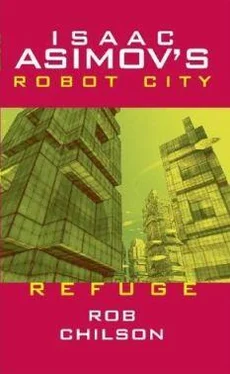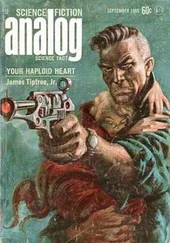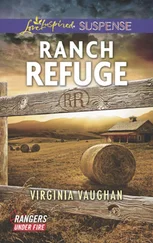Rob Chilson - Refuge
Здесь есть возможность читать онлайн «Rob Chilson - Refuge» весь текст электронной книги совершенно бесплатно (целиком полную версию без сокращений). В некоторых случаях можно слушать аудио, скачать через торрент в формате fb2 и присутствует краткое содержание. Год выпуска: 2004, ISBN: 2004, Издательство: I Books, Жанр: Фантастика и фэнтези, на английском языке. Описание произведения, (предисловие) а так же отзывы посетителей доступны на портале библиотеки ЛибКат.
- Название:Refuge
- Автор:
- Издательство:I Books
- Жанр:
- Год:2004
- ISBN:ISBN: 0-743-48716-8
- Рейтинг книги:5 / 5. Голосов: 1
-
Избранное:Добавить в избранное
- Отзывы:
-
Ваша оценка:
- 100
- 1
- 2
- 3
- 4
- 5
Refuge: краткое содержание, описание и аннотация
Предлагаем к чтению аннотацию, описание, краткое содержание или предисловие (зависит от того, что написал сам автор книги «Refuge»). Если вы не нашли необходимую информацию о книге — напишите в комментариях, мы постараемся отыскать её.
Refuge — читать онлайн бесплатно полную книгу (весь текст) целиком
Ниже представлен текст книги, разбитый по страницам. Система сохранения места последней прочитанной страницы, позволяет с удобством читать онлайн бесплатно книгу «Refuge», без необходимости каждый раз заново искать на чём Вы остановились. Поставьте закладку, и сможете в любой момент перейти на страницу, на которой закончили чтение.
Интервал:
Закладка:
“Rating?”
“One’s position in Earthly society. I understand that things are not greatly different in any human society, but on Earth such things have been formalized to a much higher degree.”
“It’s true that in the Spacer worlds the most important people usually get the best of what’s going,” said Ariel wryly. “Maybe Earth is actually more honest in admitting this. What kind of government does Earth have? Is it democratic, aristocratic, or what? Do the higher ratings run everything?”
“In answer to your last question, yes, to a degree. Earth is a democratic syndicalism, with elections to Parliament made from location-in the lower house-and from industry to the upper house, or senate. Elections are democratic in those areas, but most of the administration is by appointed officials, these being people who have passed certain tests and worked their way up from less important offices. Syndicalism means that industry-primarily the feeding, housing, and clothing of the population-dominates the government.”
“I can see how that would be necessary,” said Derec, watching the robot’s big, clumsy hands proceed delicately at their task. “How many ratings are there, and what’s the highest?”
“Currently there are twenty-one ratings. The rating A is usually considered the highest. It is rarely bestowed. Only ten million humans are in this rating category.”
One out of ten, Derec thought automatically. Then he caught himself. No: on Aurora, or most of the Spacer worlds, ten million would be ten percent of the populace. But Earth had
“What’s the population of Earth, R. David?” Ariel asked, having paralleled Derec’s thought.
“Eight billion, Miss Avery.”
Eight billion! They looked at each other. The population of eighty Spacer worlds-and there were only fifty.
“Who is in the A rating? Government officials?”
“No, this rating is reserved for entrepreneurs who solve large problems, for inventors, heroic spacemen, and other adventurers. It may be conferred by popular acclaim, as in the case of certain beloved entertainers. Recipients of the A rating have many privileges, among them the right to adorn their doors with laurel.”
A high honor, like the Medal of Aurora. Derec nodded; the details-what was laurel?-didn’t matter.
“What’s the next lowest rating?”
“ B rating is reserved for planetary and continental governmental officials, both elected and appointed. C refers to City officials. D is for industry officials. From there it becomes complex and not obvious. There are fifteen steps in each rating, the lowest being step one.”
“So, what rate and step are you preparing for us?”
“I am preparing identification for T ratings, as I did for Dr. Avery, as I assume you will wish to remain anonymous as Spacers. It will certainly facilitate your investigations of Earthly society if you pass unremarked, and the T rating is the best for that purpose.”
“What kind of people normally are assigned T ratings?” Ariel asked.
“The ‘T’ stands for ‘Transient.’ Any person whose duties require him or her to travel may be assigned this rating, unless the rating itself allows of that eventuality, as do B ratings and many A ratings. Salesmen, for instance, may be rated D or T but usually T as D is assigned to administrative duties.
“In your cases,” R. David continued, “I had considered assigning you S ratings-students-but I judged it not advisable, as students have certain restrictions, and I would be forced to specify a school.”
Interesting as all this was, Derec found the hour it took to prepare the ID dragging. The tiny-roomed apartment, with only two rooms, was a prison more confining than any he had viewed in historical novels. Even the dungeons of the ancient times on Earth had seemed larger. The varying mechanical drone seemed to grow louder and louder until he was forced to speak, whereupon it faded at once to its actual low level.
It was the sound, he thought in some awe, of the City-a sound no Earthman could avoid, from birth to death. For they never went outside their Cities.
Finally, the ID was completed, and R. David explained the uses of the various pieces. “This is your ration tag for food; your home kitchen is 9-G. Personals are also assigned, but you may use any you see. Derec, take care not to speak to or look at anyone in Personal; there is a strong taboo for men on Earth. Ariel, women have no such taboo; you may speak in Personal. Your ratings do not grant you stall privileges. You must supply your own combs, brushes, and shaving equipment.”
R. David droned on, provided them with a map of the local area. There was an attempt to put everything on the same level, they learned. Their quarters were low-status, and so they had to go up or down to Personals and commissary.
At length the robot gave them hats and let them go, obviously worried. Ariel opened the door and stepped out, Derec following.
The same oyster-white walls as the interior; they might have been in a very cheap hotel, and in fact, Derec surmised, they were. A youth with long, elaborately coiffed hair and gaudy cheap clothes gave them a sullen look from down the corridor as he entered an apartment. An older woman, heavy and squarish and short, passed them, carrying an open bottle and exhaling the odor of mousey beer. She did not so much not look at them as not see them.
Turning to the right, Derec led them toward a gleam of brighter light. Behind them, two men exited from an apartment, talking casually together about a sports event, oddly called “boxing.” Moments later, Derec and Ariel were at the junction.
A wider, busier corridor crossed theirs at right angles. Ariel pointed out the sign that told them that theirs was Sub-Corridor 16. They had just entered Corridor M. Turning left, they followed a small crowd, which quickly resolved itself into an accidental grouping. There must have been fifty people in view at any given moment, Derec estimated, and was slightly staggered.
Abruptly, on the right the wall became transparent and they looked into an open space in which children raced about and bounced balls. A playground. The inside of the wall had crude bits of childish art affixed to it; posters boasted of obscure triumphs, and “recitations” were advertised. It was strange, yet Derec found it familiar. Sometime in his forgotten past he had played in such a playground, though nothing specific came through.
One thing, though, he missed: the gleam of attentive robots along the wall and amid the yelling mobs.
Corridor M terminated at a large circular junction. In the angles, four escalator strips spiraled-two up and two down. Beyond, according to the signs, was another subsection: theirs was Sub-Section G.
Perhaps a hundred men, women, and children were visible, Derec thought. He and Ariel, awed, slowed their pace and drifted to one side of the center of the junction, avoiding both the mouths of the corridors and the escalators. A hundred-and not the same hundred. Moment by moment, people filtered in and filtered out, up or down, away along the corridors, or in from either direction.
Derec supposed wildly that within {en minutes a person might see-oh-five hundred people. Frost! Maybe a thousand!
And now that the playground had alerted him, he noted that none of them were robots.
There were small tables with uncomfortable-looking benches before them, at which people sat, some playing chess. Other benches without tables, equally uncomfortable in appearance, harbored other people. Not far from them an old fellow like a wrinkled apple smiled cherubically at everything he saw; beside him on the bench was an uncapped bottle wrapped in brown paper up to the neck. Others who sat about were also old. Some played chess or other board games at the tables; some snacked on various foodstuffs.
Читать дальшеИнтервал:
Закладка:
Похожие книги на «Refuge»
Представляем Вашему вниманию похожие книги на «Refuge» списком для выбора. Мы отобрали схожую по названию и смыслу литературу в надежде предоставить читателям больше вариантов отыскать новые, интересные, ещё непрочитанные произведения.
Обсуждение, отзывы о книге «Refuge» и просто собственные мнения читателей. Оставьте ваши комментарии, напишите, что Вы думаете о произведении, его смысле или главных героях. Укажите что конкретно понравилось, а что нет, и почему Вы так считаете.












